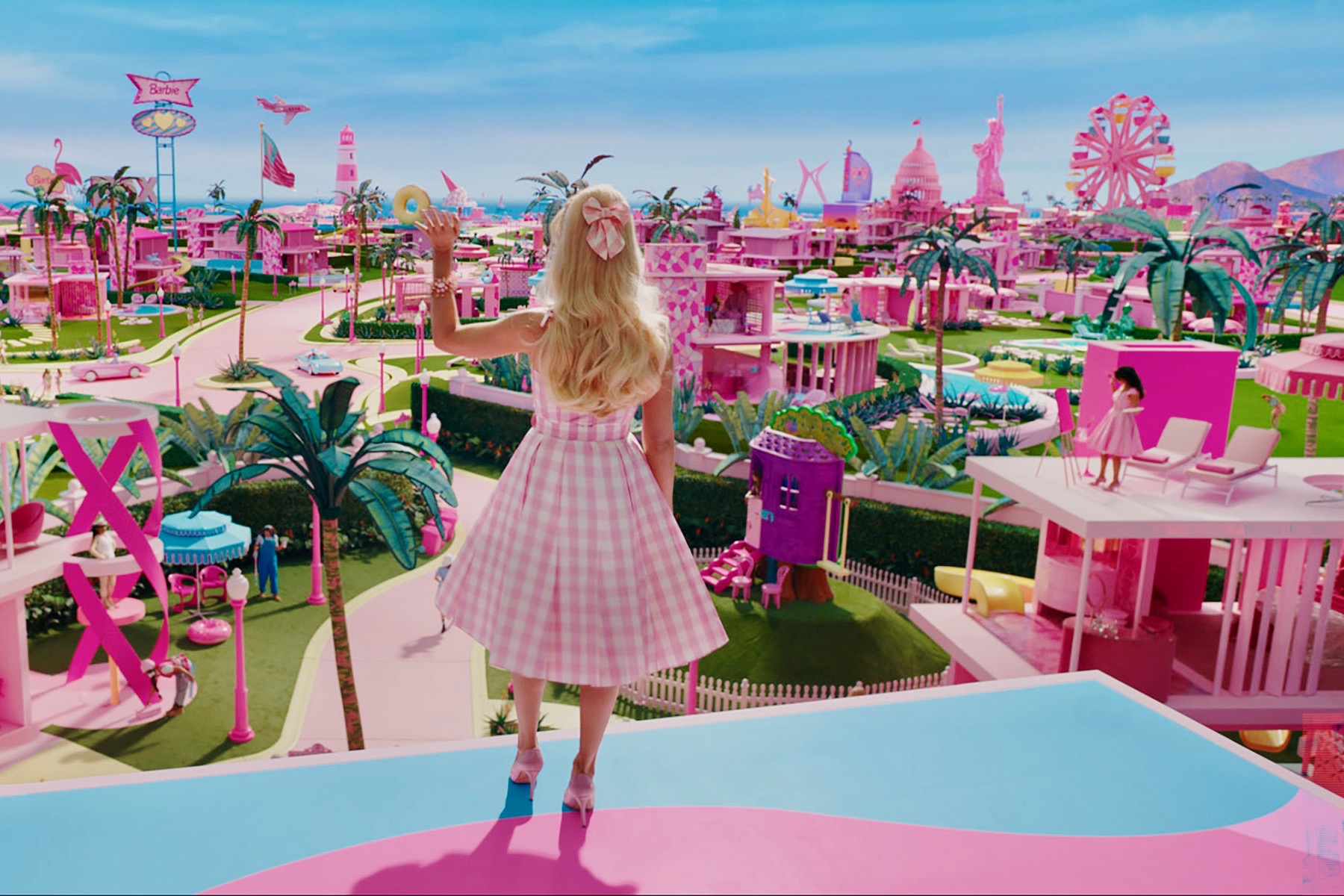The Trojan horse in Gerwig’s film is not feminism
Warning: spoilers ahead!
Why watch “Barbie?” Waste my time and money on another feminist machination? (While it shouldn’t be an ideological machination at all, since at least in Germany the rating is 6…).
Thanks for reading Pensees! Subscribe for free to receive new posts and support my work.
But then I came across Annie Brownell Crawford’s excellent article where she argues that the deepest abyss in “Barbie” is not misogyny, but a radical existentialism. That made me (a philosopher) prick my ears. And watch the film after all.
How feminist and anti-male is “Barbie” really? Is Crawford’s analysis correct? And what do other Christians have to say about it?
Feminist on the surface
One often hears the criticism that “Barbie” is too woke. Aside from the fact that it is beyond me how anyone can find any degree of wokeness tolerable, Barbie is more classically feminist than woke. It’s about the image of women, about women’s rights, about matriarchy vs. patriarchy. The circumstantial evidence seems clear at first: In the opening sequence, the girls playing with baby dolls are told to ask their mother why the initial joy of having a child eventually ends in weariness – and as if underscoring this, the girls smash their baby dolls, which Crawford even interprets as a gesture towards abortion. Girls can become anything, that’s the message not only of the intro, but of the whole film; that’s also how it ends, but more on that later.
Feminism also includes misogyny, and the film is brimming with it. Ken is not only “superfluous” (to quote Barbie), but also an absolute dork. He can only “beach”; he can’t even surf, and the only meaningful factor in his life is Barbie’s attention (of which he gets breadcrumbs at best). When they’re in the real world, Barbie sits down to telepathically locate a girl (almost like the Jedi in a Clone Wars episode meditating on the whereabouts of the endangered Force-sensitive children), while Ken “doesn’t want to think,” preferring to plod along looking for the appreciation he was refused in Barbieland. In general, the men are real laughingstocks; so much so that one suspects the caricatural overdraft carries a kind of self-criticism (more on this in the next section).
However, feminism is preached quite non-tongue-in-cheek in the speech of Sasha’s mother in front of the “weird barbies”. On closer inspection, however, the difficulties lamented there are not specifically female, but also affect many men in the Western world today, as Ryan Mullins points out in his podcast. I would add that at least some of those problems – not just for women, but indirectly for men as well – were caused by feminism itself. Who says women need to have careers in addition to being mothers if not feminists?
Smart narrative criticism?
As suggested earlier, however, beneath the all-too-obvious surface may be a smart critique of even the feminism narrative. Mullins, for example, points out that, contrary to Ken’s expectation, he does not get a job simply because he is a man; it turns out he needs a suitable qualification, the justification for which, however, he poutingly refuses to see. For me, it is not entirely clear whether the fairy tale of a nepotistic patriarchy is being taken for a ride here, or whether men are being bashed. After all, there are men in the movie who have their jobs because of acquired competence. Ken is thus probably an archetype of a kind of idiotic masculinity, which unfortunately does exist.
In any case, a relatively clear critique of the feminist message of Barbie dolls is provided by teenage Sasha. Barbies have not improved the situation of girls and women, but actually made it worse, she says: the Barbie ideal of beauty is unattainable and causes self-deprecation. This goes so far, according to Sasha, that not only men but even women “hate women”. It goes without saying that this is, again, a laughable exaggeration. Is. This finally a clear instance of narrative self-criticism by caricature? Possibly. I just wonder what will stick with moviegoers in the end. But more on that below.
One last note of feminist self-irony: the Barbies in Barbieland fall prey to the chauvinistic machismo of the converted Kens with ridiculous ease. They even identify with their new roles as dummies, servants, and “non-committal long-distance relationships”. (Interestingly, unlike Barbie in the real world, they are never relegated to sex object status.) The only way to free them from their “brainwashing” is then to give them a crash course in critical social theory. If this were an accurate picture of women, it would mean that they can only develop something like self-awareness if they are imbued with an ideology – which raises the question of who is brainwashing whom.
Radical existentialist at heart?
Well, feminism may be evaluated ambivalently in the film. That is why, as Crawford argues in her article, it is crucial to look at its ending. The ending reveals how the conflict spun throughout a story is resolved. Here, “Barbie” could have done a number of things right while collapsing the fuzziness regarding feminism. Instead, the film ends with the message it started with, only in a more radical version: you can become whatever you want. Barbie is asked by her creator, Ruth Handler, how she wants to proceed. She has the choice to remain a doll, or to become a real woman. Barbie replies that she now wants to be someone who creates, not something that is created; a creator, rather than a creature.
The message is more radical because, while at the beginning this mantra is proffered in terms of professions and vocations, it is now promulgated in terms of identity in all its entirety and depth; and because it is now addressed not only to girls and women, but also to men. Ken is told not to identify through a relationship with Barbie, but to find his true self completely independent of her (and apparently of other women or men, since none of them are mentioned as alternatives).
This may not sound so bad at first. Isn’t it actually unhealthy to seek one’s happiness in other people? Sure, but I am afraid that the message of “Barbie” goes much further. The Christian view emphasizes that even if we find our ultimate happiness only in God and not in people, interpersonal relationships are an essential part of our existence, and to some extent of our identity. Gender is in any case (yes, even in eternity[1]!), and certainly gender roles are as well, insofar as they are intrinsically linked to gender (e.g., motherhood and fatherhood). “Barbie” preaches self-realization without relationships, and thus without love, as Crawford astutely points out. Barbie’s philosophy is thus a kind of existentialism, whose slogan is l’existence précède l’essence (Sartre). Existence precedes essence. One exists first (as a kind of white sheet) and then writes on it one’s essence, which is not given from the outside, but self-created. Thus, existentialism is in stark opposition to the Christian worldview.
It should not go unmentioned that the very last scene is one in which Barbie registers with a gynecologist (significant since she has no vagina before becoming human). This could be a way out into the nature of essences. But this, again ambivalent, suggestion (Gerwig obviously loves ambivalences) is not enough to “redeem” the film.
Its existentialism is the most perfidious message of “Barbie.” While one can argue about its portrayal of women and men, in its philosophy lies a counter-proposal to the Judeo-Christian worldview (which has shaped the Occident for more than a millennium and a half) so universal, so life-encompassing, that questions of ideology seem like teenage squabbles by comparison. To be clear, this radical[2] existentialism preaches a world without love because love only works in relationships.
I must admit that this look into the depths is not easy to accomplish. Without Crawford’s help, I wouldn’t have been able to get it done, or not right away. How do other Christian media outlets view it?
The impression that remains
Barbie is an intelligent and superbly crafted film. (The laughs Ryan Mullins had while watching it stuck in my throat, but that may have to do with my temperament.) But high quality does not guarantee virtue.
The movie’s critique of feminism may be subtle; his existentialism is not. The latter will probably be recognized only by trained philosophers and rejected only by those who have not yet been corrupted by it; all others will take it up like a Trojan horse. The former, in my estimation, will pass by the vast majority of moviegoers without a trace. What most will be left with is are two hours of funny male bashing with a good dash of female revenge and intrigue fantasies. Not exactly what you can call an educational film.
[1] One should not take Jesus’ statement that the saints in heaven no longer marry (Matthew 22:30) to mean that there are no genders there. There is no evidence of that at all. Who has difficulties to imagine sex in celestial beings, may read C.S. Lewis’ Perelandra, where in masterly manner sex is attributed to angels, although in other manifestation than we are used to in humans.
[2] I speak here deliberately of a radical form of existentialism. I am aware that the forefathers of existentialism (Sartre, Camus, Heidegger) would have rubbed their eyes in amazement in the face of “Barbie”. Or would have turned over in their graves.
Image: imbd.com








